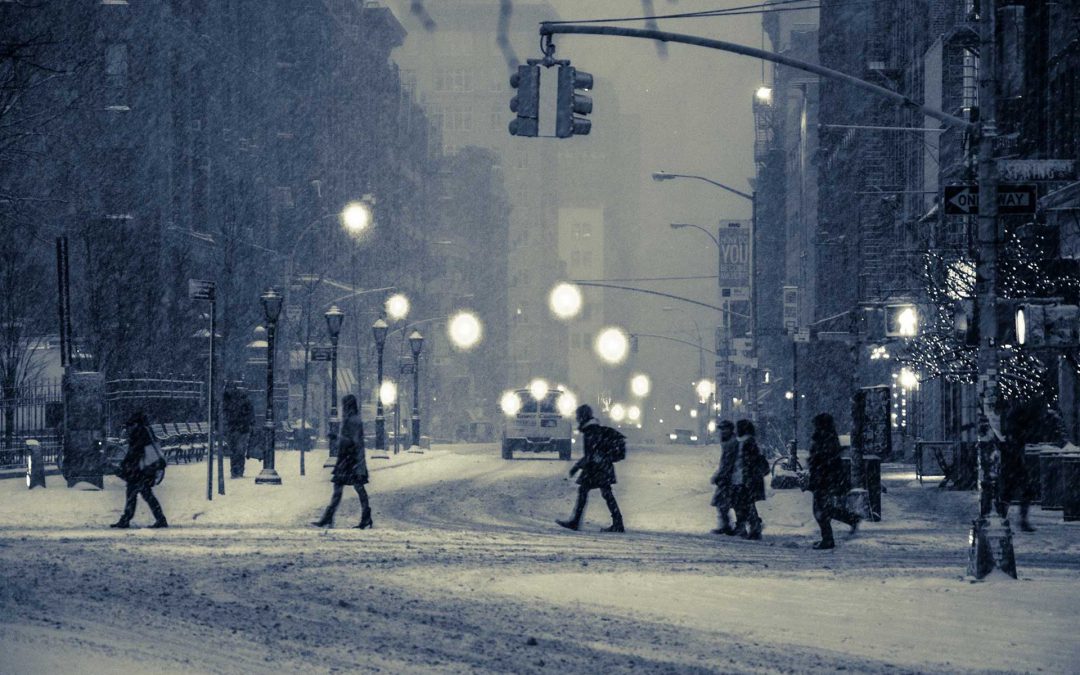By Halle Porter, EI blogger
Winter can be a fun and exciting time for everyone! It is the perfect time to slow down and relax, or speed up and prepare for the holiday season. However, with the colder and harsher weather, older adults are at greater risk for harm as many older citizens are more prone to accidents and are slower to recover. This is why the LGBT Elder Initiative has compiled a list of precautions older adults should consider this winter!
1. Be Careful not to slip on ice
Wearing shoes with good traction or non-slip soles can help, as well as replacing any worn cane tips.
2. Prepare for Emergencies
Always have supplies stored and ready in case of a storm or blackout. Seniors should have warm blankets, necessary medications, flashlights, batteries, a battery powered radio, and nonperishable foods for themselves and pets in a place that is easily accessible.
3. Avoid Shoveling Snow
Shoveling tends to put stress on one’s bones and heart. Seniors should avoid shoveling snow if possible. But if that is not an option, elders should use a lightweight shovel and push snow out of the way instead of lifting it up and tossing it out of the way. It also helps to stretch and do warm-ups before shoveling.
4. Watch Out for the Winter Blues
Whether it be seasonal depression, stress from the holidays, or isolation because of the harsher weather, winter can take a toll on one’s mental health. Friends and family should check on seniors as often as possible. Consider a system in which neighbors or friends check in on seniors regularly. Police and sheriff’s departments also offer a free daily calling service for seniors. AmeriCorps and SeniorCorps also train volunteers to support seniors with daily transportation need and how to be companions to older adults.
5. Try to Stay Warm!
In addition to keeping indoor temperatures above 65 degrees Fahrenheit, seniors should also layer clothes, wear thick socks, and cover all exposed skin while outside. It is also important to be aware of the signs of frostbite (skin that feels waxy or hard; skin that looks pale, ashy, or greenish-yellow; feelings of numbness, etc.) and the signs of hypothermia (cold skin; feeling very tired, sleepy, confused, or weak; slowed breathing or heart rate, etc.). If frostbite occurs, one should try running the affected area underneath warm water before seeking medical attention. If hypothermia occurs, immediately seek medical attention.
6. Automobile Safety
Seniors who drive independently should let someone know when they are going out and when they will return. They should also always travel with a cell phone in case of an emergency. In addition, older citizens should have their cars serviced before temperatures drop too low, paying special attention to the car’s batteries, tires, antifreeze, and windshield wipers, and check that their AAA membership is up to date. Lastly, elders should keep a modified emergency kit in their cars that include blankets, extra clothes, a lightweight shovel, , booster cables, and a bag of rock salt, sand, or cat litter in case the car’s wheels get stuck in snow.
7. Beware of Carbon Monoxide Poisoning
Heating appliances such as fireplaces, stoves, heaters, etc., tend to leak carbon monoxide when not properly used and maintained. Carbon monoxide is a poisonous, invisible, odorless gas. To avoid any CO2 related harm, invest in a carbon monoxide detector. If you already have one, check the batteries and always keep extras in case.
The most important thing to remember this time of year is to be safe. If you are a senior citizen, try to be prepared and have a support system that you can ask for help. With all of this in mind, enjoy the winter as best you can!
Further information is available through the following websites:
https://www.care.com/c/stories/5447/7-winter-safety-tips-for-seniors/
http://www.healthinaging.org/resources/resource:winter-safety-tips-for-older-adults/
http://www.retireathome.com/winter-weather-safety-tips-seniors/

